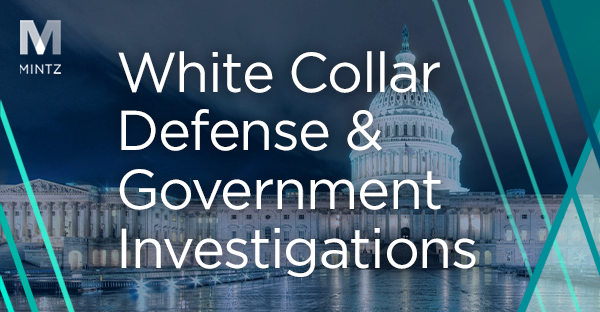Dodging Duties: The Ninth Circuit Affirms an Expansive Application of the False Claims Act Consistent with Trump Administration Priorities to Target and Combat Customs Fraud and Tariff Evasion
On June 23, 2025, the United States Court of Appeals for the Ninth Circuit affirmed a district court judgment in a case in which the jury found the defendant knowingly made false statements on customs forms to avoid paying duties on Chinese imports.[1] The decision affirms an expansive application of the False Claims Act (“FCA”) that plays directly into the hands of the Trump administration’s evolving enforcement priorities.
Qui tam plaintiff Island Industries, Inc. (“Island”) filed suit under the FCA against Sigma Corporation (“Sigma”), a pipe fitting manufacturer and Island competitor, alleging that Sigma made two types of false statements on customs forms to evade antidumping[2] duties that applied to welded outlets.
Island alleged that Sigma declared on customs forms that products it was importing were not subject to antidumping duties and that it described the products as steel couplings even though they were marketed as welded outlets. The welded outlets, Island asserted, were subject to an antidumping duty order that covered certain pipe fittings imported from China. The jury returned a verdict in favor of Island, finding Sigma liable for violating the FCA and determining that it owed over $8 million (before trebling). The district court denied Sigma’s subsequent post-trial motion for judgment as a matter of law or a new trial.
In affirming the district court, the Ninth Circuit rejected Sigma’s contention that 19 U.S.C. § 1592, which provides a specific mechanism for the United States to recover fraudulently avoided customs duties, displaces the FCA. Rather, the court found that § 1592 overlaps with the FCA— which reaches antidumping duties that an importer fraudulently evades paying.
To support the conclusion that there is no irreconcilable conflict between the statutes, the court reasoned that § 1592 does not state that it is an exclusive remedy. In addition, the FCA expressly contemplates that FCA cases can proceed in parallel with the government’s pursuit of “any alternate remedy available to the Government, including any administrative proceeding to determine a civil money penalty.”[3] The FCA has also been amended by Congress to reach fraud aimed at avoiding payment obligations to the government. Viewed in conjunction, the court reasoned that the statutory and legislative history of the FCA and § 1592 confirm that Congress did not intend § 1592 to be the sole avenue for recovering such duties.
Of note, Sigma further argued that it lacked the requisite scienter (intent) because it would have been objectively reasonable to believe that its products were not covered by the relevant antidumping duty order at the time of importation. However, the court held that such an objective-reasonableness defense was foreclosed by United States ex rel. Schutte v. SuperValu, Inc., 598 U.S. 739 (2023).[4] In SuperValu, the United States Supreme Court held that the FCA’s scienter element is met if the defendant’s subjective beliefs indicate it had knowledge that its submission of claims was false or fraudulent, regardless of whether the defendant’s conduct could be supported by a later objectively reasonable interpretation of an ambiguous legal or regulatory issue. Here, the court determined there was sufficient evidence for the jury to conclude that Sigma acted with either deliberate ignorance or reckless disregard for the truth when it declared on customs forms that it did not owe antidumping duties.
This constitutes the first instance that a federal appellate court has affirmed a customs-based FCA trial verdict. The result underscores the government’s clear ability to utilize the FCA in applicable trade enforcement matters. It is also a significant result for whistleblowers. Under § 1592, only the government may initiate an action. While a whistleblower may be awarded up to a quarter of any recovery that the government obtains, that amount shall not exceed $250,000 for any case. The FCA, however, offers the prospect of much higher potential damages.
This decision is particularly timely given the Trump administration’s strategic objectives. As we recently summarized in an advisory covering white-collar enforcement priorities for the new administration, trade and customs fraud has been announced as a top priority by the Department of Justice’s (“DOJ”) Criminal Division.
Beyond trade and customs fraud, as a general matter, Attorney General Pamela Bondi has affirmed her commitment to defending the constitutionality of the FCA, and DOJ leaders have confirmed plans to utilize the FCA “aggressively.” Accordingly, a June 11, 2025 memorandum outlining enforcement priorities for DOJ’s Civil Division contemplates utilization of the FCA to achieve multiple objectives, including “combating unlawful discriminatory practices” for private sector entities that “receive federal funds but knowingly violate civil rights laws” as well as pursuing false claims submitted to federal health care programs for non-covered services related to gender experimentation.
With a heightened focus on novel applications of the FCA, whistleblower risk remains important for companies to keep top-of-mind. Employee hotlines and other internal reporting mechanisms must be adequately resourced and effective in application. Companies should take inventory of their compliance systems now and ensure that their policies address the reality of a rapidly evolving enforcement landscape.





